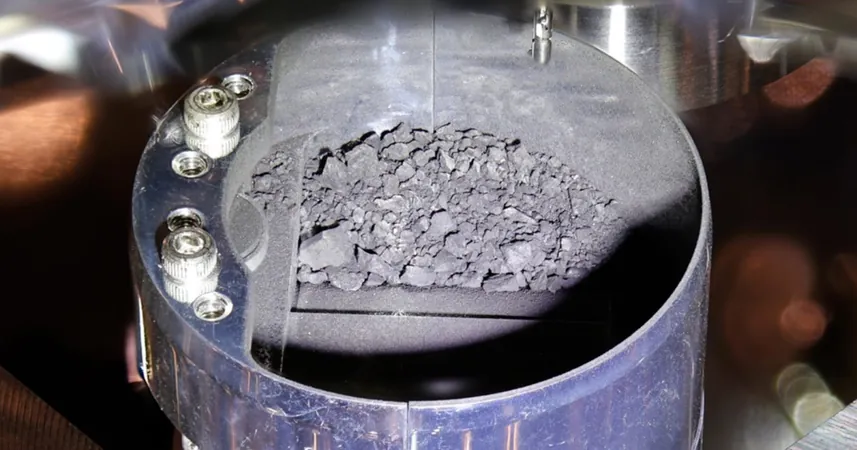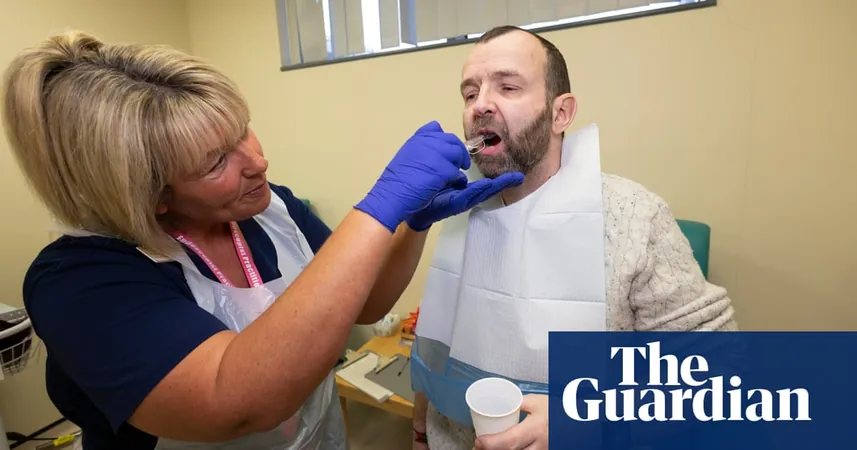
Life Discovered in Ryugu Asteroid Sample: The Exciting Find That Falls Short!
2024-11-28
Author: Nur
Introduction
In an unexpected twist, scientists analyzing a rock sample from the Ryugu asteroid were initially thrilled to discover an abundance of microbial life. However, their excitement was quickly tempered by the realization that these microorganisms are Earth-based, bringing a wave of disappointment instead of interstellar revelations.
Background of the Ryugu Asteroid
The Ryugu asteroid, collected during Japan's Hayabusa2 mission and returned to Earth in 2020, has ignited the imaginations of researchers and enthusiasts alike. For scientists around the globe, the opportunity to study extra-terrestrial material is akin to hitting the scientific lottery. The potential for groundbreaking discoveries, such as insights into the origins of life on our planet or the possibility that life can thrive beyond Earth, fuels ongoing research into these cosmic treasures.
Containment and Research Protocols
To protect the integrity of the samples, scientists took extraordinary precautions. The sample underwent meticulous handling processes including hermetically-sealed transportation and the use of nitrogen-purged clean rooms. These measures were intended to prevent contamination from terrestrial sources and to preserve the pristine nature of the material.
Unexpected Contamination
Nevertheless, the researchers at Imperial College London encountered an unexpected challenge. Their study, titled "Rapid Colonization of a Space-Returned Ryugu Sample by Terrestrial Microorganisms," revealed that despite initial inspections suggesting no signs of contamination, microbial life from Earth began to emerge almost immediately upon exposure to the atmosphere. Within just a week, rods and filaments resembling known Earth microbes were detected on the sample's surface.
Scientific Implications
While the findings sparked less enthusiasm than anticipated, they underscore a critical issue in planetary science; even with stringent protocols in place, the possibility of contamination remains a significant concern. This highlights the urgent need for enhanced safeguarding practices in astrobiological research, ensuring that future explorations yield reliable results.
A Cautionary Tale
This incident at Imperial College does not automatically imply that all Ryugu samples worldwide are compromised; however, it serves as a cautionary tale. Any claims regarding the discovery of extraterrestrial life will now be approached with heightened skepticism, as the scientific community calls for rigorous scrutiny of such assertions.
Conclusion
As the search for extraterrestrial life continues, this experience reminds us that the quest to answer profound questions about our universe is complex and often filled with unexpected hurdles. The dream of uncovering evidence of life beyond Earth is alive—albeit with a strong need for vigilance in the face of contamination challenges!



 Brasil (PT)
Brasil (PT)
 Canada (EN)
Canada (EN)
 Chile (ES)
Chile (ES)
 España (ES)
España (ES)
 France (FR)
France (FR)
 Hong Kong (EN)
Hong Kong (EN)
 Italia (IT)
Italia (IT)
 日本 (JA)
日本 (JA)
 Magyarország (HU)
Magyarország (HU)
 Norge (NO)
Norge (NO)
 Polska (PL)
Polska (PL)
 Schweiz (DE)
Schweiz (DE)
 Singapore (EN)
Singapore (EN)
 Sverige (SV)
Sverige (SV)
 Suomi (FI)
Suomi (FI)
 Türkiye (TR)
Türkiye (TR)